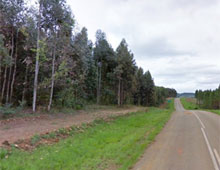Dr. Onkgopotse JJ Tabane
Dr. Onkgopotse JJ Tabane argues that media and politics cannot be separated as both exist within the public sphere which should ideally afford all freedoms of expression. The Journalist publishes this commentary and excerpts from Tabane’s PhD research Bridging The Gap: An Analysis Of The Complicated Relationship Between The Government And The Media 23 Years Into Democracy.
The tension that is alive between media and the government is caused by wrestling for either to be dominant over the other, to control the national narrative and the public sphere agenda. While South Africa as a country has come a long way since the dark days of apartheid where the government of the day used ‘a myriad of laws in its books and employed multiple tactics to gag the media’ (Armoudian, 2013), we have something to celebrate yet we have to continue keeping our guard up.
The world is aware of the Black Wednesday – October 19, 1977, when the erstwhile white-only National Party apartheid government gagged the media through laws designed to make it almost impossible to publish any information without authorisation from the government, especially on political and national security issues. When newspapers such as The World and Weekend World were banned, even journalists were criminalised and thrown into jail without trial, all of which was legitimised by the country’s public policy agenda through intricately crafted acts, leaving no possibility of escaping the wrath of the brutal and unjust apartheid against the media. All of this in the effort to evade government accountability.
Times have changed
While we must acknowledge that much has changed under South Africa’s democracy, post- 1994 wherein “constitutional rights” protect media freedom, today media freedom is protected by the constitutional law – the Bill of Rights. However, the push and pull effect between lawmakers and the media still exists, and – sadly – it will be a permanent state as both sides are constantly attempting to set their agenda and frame their messaging to shape public opinion.
While things are not bad, media is not free from threat
Reid argues that “just because things are not as bad as they were during apartheid does not mean that the media system is entirely free or free from threat. Nor does it indicate that the sector is operating as well as it should, according to democratic principles” (Reid, 2017). It was the emergence of Protection of State Information Bill (POSIB) in 2013, in the middle of (Jacob) Zuma’s tenure, which attempted to criminalise media activities, which is in the public interest and that would have adversely affected the manner in which journalists delivered their investigative reports (Harris, 2013). Thankfully – the bill, commonly referred to as the Secrecy Bill, never gained traction as civil society activism surged and media practitioners interested in protecting public interest, public opinion and the public sphere defied the gagging and as a result it was withdrawn twice, but that doesn’t mean government didn’t and doesn’t continue to attempt to subliminally influence public discourse.
Media’s complex relationship with government
In the last two decades South Africa has seen developments that define the complex relations, for example:
- The inquiry into racism in the media by the South African Human Rights Commission (SAHRC) whose report found that there were traces of subliminal racism in the media (HRC, 2009);
- The mooting of the Media Appeals Tribunal (MAT) by the governing party following the Polokwane Congress in 2007 (ANC, 2008);
- The report from the Press Freedom Commission on media self-regulation led by late Justice Pius Langa; and
- The skirmishes between then president Zuma and various media – including the lawsuit against cartoonist, Zapiro, which was subsequently withdrawn.
The Role of the Media in a Democracy – Trust issues?
A democracy requires a decent amount of information flow to function optimally. In other words, the less information available, the less empowered citizens become. In the context of our history, where there were information structures, the conduct of the government to make information available must be scrutinised, as better is expected in a constitutional democracy.
Spiess (2011), in From watchdog to lapdog? The impact of government intimidation on the public watchdog performance of peace media in processes of democratisation, concentrating on what is referred to as investigative journalism also known as watchdog media (WM), describes it as ‘reporting that serves’ (Spiess, 2011) the exposure of wrongdoing in the public interest‘ (Coronel (2009: 3), cited in Spiess, 2011).
Such journalism does ‘not only provide information but particularly focuses on malfeasance’ (Spiess, 2011:5). Media as watchdogs ‘can therefore contribute to each phase of democratisation and in several ways, including policy-making and law abidance, their main contribution is to hold powerful actors accountable’ (Spiess, 2011:5). We see this in the role the media played to unearth corruption in the Zondo Commission with the Gupta saga.
One of the researchers (Spiess, 2011) cautions that the media ‘can also harm fledgling democracies such as in developing countries, for example on the African continent, excessive criticism and ‘attack dog’ journalism (Voltmer, 2009: 5). Unprofessional and unethical watchdogs can erode trust in the media, thereby undermining a vital ingredient for a well-informed citizenry (Tettey, 2006). Also, sensational and ‘adversarial watchdogism’ causes detrimental frictions (Louw, 2005: 64) and journalists in need of sensational stories, coupled with informants who strategically leak information, reinforce the power of elites rather than holding them accountable (Waisbord, 2000), (Spiess, 2011).
Media should not be political players
In a paper entitled The Role of Media in the Arab World’s Transformation Process, Kai Fahez (2011) argues that the media must not see themselves as political players, but rather as mediators between the state, the opposition, and civil society. For instance in South Africa, the present day and first democratically elected government of the African National Congress (ANC) still engages the media as though the governing party has a monopoly of the public sphere in conveying its message rather than those of oppositional policymakers. The media must ensure that it can play an almost neutral referee role. However, following the discussions about the possibility of media regulation, the ANC had stated, through its then treasurer-general, Zweli Mkhize, that ‘the ANC was perturbed by the oppositional stance of some sections of the media. “We take serious offence and we need to look at the adequacy of the peer-driven mechanism.” (City Press, 2015).
According to Warren Francke in his paper entitled The Evolving Watchdog, the media’s role in the government ethics can be considered to play two roles in society: that of a watchdog and that of a societal player, as it is part of civil society. Francke suggests a role of influence on ethics in public life (Francke, 1995), which certainly undoes the ANC’s argument of expecting media to ignore oppositional views to its own strategic messages.
Media and the government should be accountable
South Africa’s political system does not lend itself to holding members of parliament accountable by their constituencies. Because the system leans heavily on a party system, there is scant accountability. The media creates a platform that ensures that citizens’ representatives can be held to account.
The World Bank report entitled The contribution of government communications’ capacity to achieving good governance outcomes, underlines three simple pillars that can help us understand the role of communications in a democracy, namely, enhancing the capability of the state to get things done, making the state responsive to the needs of citizens, and upholding their rights and enhancing the ability of citizens (and civil society in general) to hold the government accountable (World Bank Report, 1999).
‘Forty years later, it is important to acknowledge the advancements for media freedom since those dark times’ (Reid, 2017). South Africa’s Constitution protects a Bill of Rights guaranteeing freedom of expression and of the media. ‘But just because things are not as bad as they were during apartheid does not mean that the media system is entirely free or free from threat. Nor does it indicate that the sector is operating as well as it should, according to democratic principles’ (Reid, 2017).
For instance, the government of president Thabo Mbeki was unhappy about how it had sometimes been treated by the media and how the president had been caricatured. Even then there had been no attempt to censor or punish the media or to pass laws to regulate the media or to prevent them from doing their job of making the government accountable for its actions. It was under his watch as deputy president under the (Nelson) Mandela government that the Comtask report was put together and ultimately led to the formation of GCIS (De Villiers, 1996).
Under Zuma South Africa saw the emergence of the Protection of State Information Bill (POSIB) in 2013, which criminalised media activity that is in the public interest and would adversely affect the manner in which journalists delivered their investigative reports (Harris, 2013). The bill commonly referred to as the Secrecy Bill, never gained traction as civil society activism surged and media practitioners interested in protecting public interest, public opinion and the public sphere defied the gagging. As a result, it was withdrawn twice, but that doesn’t mean the government didn’t and doesn’t continue to attempt to subliminally influence public discourse.
Zuma inserted himself into the public sphere, encouraging and endorsing what were to be his presidency’s mouth-pieces the New Age newspaper as well as ANN7 TV news channel, which were run by the Gupta family with close association with his family. All in the name of not wanting to be held accountable.
Dr. Onkgopotse JJ Tabane’s full thesis Bridging The Gap: An Analysis Of The Complicated Relationship Between Government And The Media 23 Years Into Democracy submitted in 2019 at the University of Witwatersrand can be accessed in The Journalist’s Academic Papers section.










